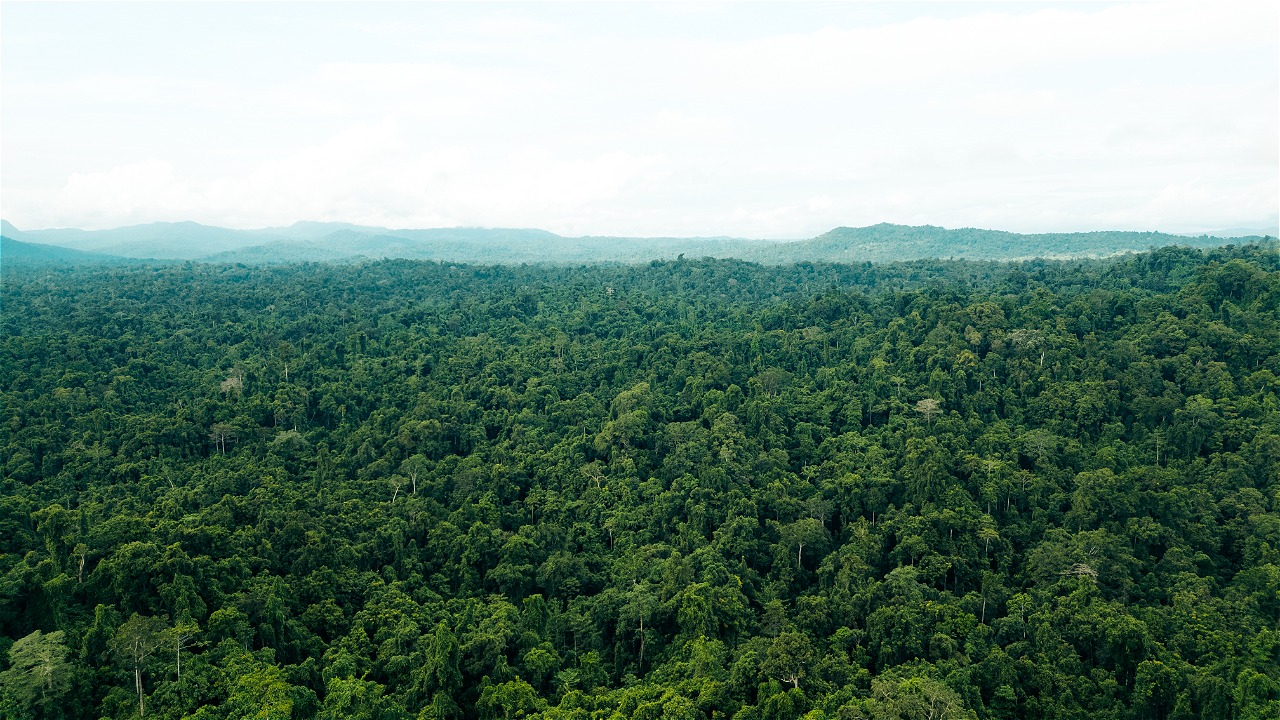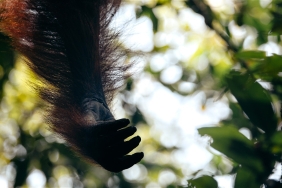WWF-INDONESIA AND WEST KUTAI BRANCH SCOUT MOVEMENT CONTINUE COOPERATION ON SUSTAINABLE DEVELOPMENT EDUCATION
Sendawar, February 9, 2018. WWF-Indonesia Upper Mahakam Landscape Project together with the West Kutai Scout Movement Kwartir Cabang (Kwarcab) signed a further Memorandum of Understanding (MoU) in terms of cooperation in sustainable development education. The signing of this important document was carried out on Thursday, February 9, 2018 at Tulur Aji Jejangkat Building, West Kutai district office complex, East Kalimantan. The event was attended by several officials of West Kutai district, and about 118 people from 11 Kwartir Ranting.
This collaboration was held in order to increase the active participation of the younger generation as agents of change in the success of sustainable development. WWF-Indonesia and the West Kutai Kwarcab Scout Movement collaborate in the development of the Sustainable Development Education program in West Kutai. Through this collaboration, the younger generation is expected to increase their role and awareness, so that they can unite to carry out environmental awareness movements around them to support sustainable development. Cooperation can be carried out in several activities such as training, workshops, seminars, surveys, field studies, environmental camps, waste management and general activities agreed upon by both parties.
Scouting is the largest youth movement in Indonesia, even in the world. In Indonesia, Scouting has also been incorporated into the formal education system which is a place for the nation's generation to learn the values of leadership, kinship, and love for the country. Not only that, the value of loving the environment is also present in Scouting which is reflected in one of the points of the Dasa Dharma Pramuka, which is a guideline for Scouts in their daily lives, which reads "love of nature and compassion for fellow human beings". This shows the harmony between the values in Scouting itself and sustainable development education. Therefore, the collaboration between WWF-Indonesia and the Scout Movement is a positive opportunity to solve environmental problems through education.
WWF-Indonesia has been working in the field of education for sustainable development in West Kutai since 2009. Education is very important in the process of solving environmental problems that occur. The existence of environmental education, can bring public attention, especially the younger generation to be concerned about environmental damage that is the result of the unbalanced process of development and environmental utilization that occurs. The process of education and socialization regarding the understanding of the values of sustainable development, such as the relationship between humans, nature, and a balanced social economy, is expected to encourage the younger generation to take actions that can answer environmental problems now and that will occur in the future.
Many environmental education activities based on sustainable development values are carried out by WWF-Indonesia in the eastern region of Borneo. One of them is to equip the young generation in West Kutai with knowledge related to sustainable development, which prioritizes the balance of three aspects: economic, social, and environmental. With the provision of knowledge about sustainable development, it is hoped that in the process of making decisions and actions, they will use these values as the main consideration so that the balance of these three aspects of development is maintained.
Sustainable development itself has several goals that focus on environmental sustainability. These goals include ensuring environmental sustainability, halving the proportion of the world's population without access to clean drinking water and good health, and reducing the impact of biodiversity extinction. If the sustainability of life can be well maintained, then the abundant natural resources can be accessed properly, so that the preservation of nature can have a positive impact on human welfare. The use of existing resources also needs to be considered wisely so that in the future it does not cause a crisis or even species extinction. Because the extinction of species will cause an imbalance in the ecosystem and have an impact on the resilience of the ecosystem itself.
Education is the key to solving environmental problems that occur today. The lack of public awareness as an important instrument in life can be said to be one of the main causes of the damage that occurs. Therefore, education with environmental values and sustainable development is the spearhead for solving current and future environmental challenges. This makes cooperation in environmental education a local action that will have a global impact.



